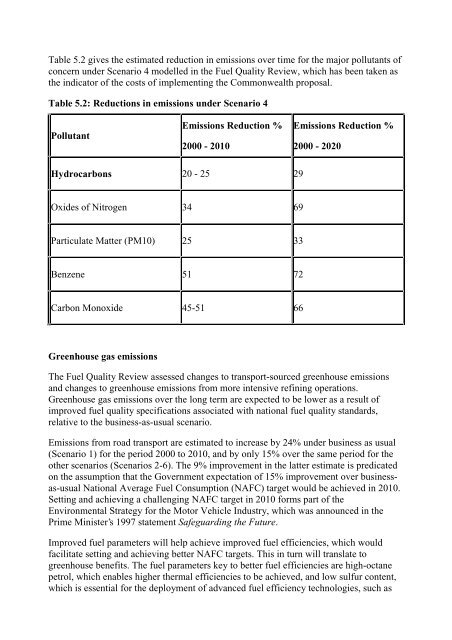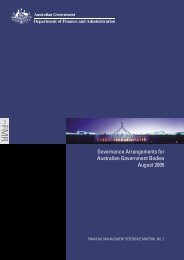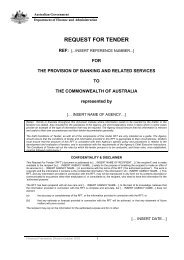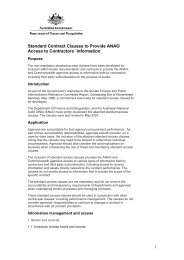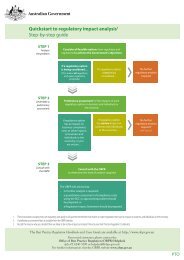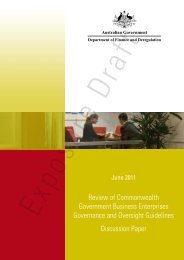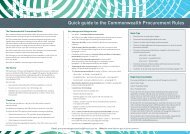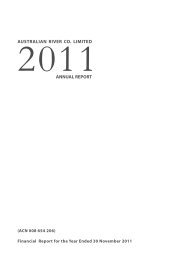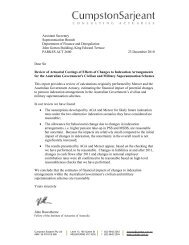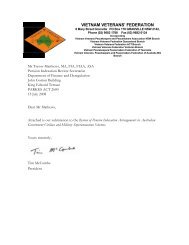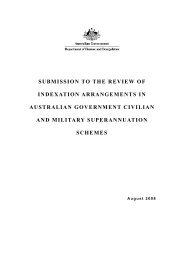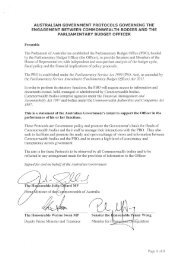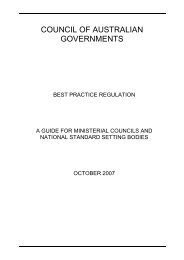National Fuel Quality Standards Regulation Impact Statement 1 ...
National Fuel Quality Standards Regulation Impact Statement 1 ...
National Fuel Quality Standards Regulation Impact Statement 1 ...
Create successful ePaper yourself
Turn your PDF publications into a flip-book with our unique Google optimized e-Paper software.
Table 5.2 gives the estimated reduction in emissions over time for the major pollutants of<br />
concern under Scenario 4 modelled in the <strong>Fuel</strong> <strong>Quality</strong> Review, which has been taken as<br />
the indicator of the costs of implementing the Commonwealth proposal.<br />
Table 5.2: Reductions in emissions under Scenario 4<br />
Pollutant<br />
Emissions Reduction %<br />
2000 - 2010<br />
Hydrocarbons 20 - 25 29<br />
Oxides of Nitrogen 34 69<br />
Particulate Matter (PM10) 25 33<br />
Benzene 51 72<br />
Carbon Monoxide 45-51 66<br />
Greenhouse gas emissions<br />
Emissions Reduction %<br />
2000 - 2020<br />
The <strong>Fuel</strong> <strong>Quality</strong> Review assessed changes to transport-sourced greenhouse emissions<br />
and changes to greenhouse emissions from more intensive refining operations.<br />
Greenhouse gas emissions over the long term are expected to be lower as a result of<br />
improved fuel quality specifications associated with national fuel quality standards,<br />
relative to the business-as-usual scenario.<br />
Emissions from road transport are estimated to increase by 24% under business as usual<br />
(Scenario 1) for the period 2000 to 2010, and by only 15% over the same period for the<br />
other scenarios (Scenarios 2-6). The 9% improvement in the latter estimate is predicated<br />
on the assumption that the Government expectation of 15% improvement over businessas-usual<br />
<strong>National</strong> Average <strong>Fuel</strong> Consumption (NAFC) target would be achieved in 2010.<br />
Setting and achieving a challenging NAFC target in 2010 forms part of the<br />
Environmental Strategy for the Motor Vehicle Industry, which was announced in the<br />
Prime Minister’s 1997 statement Safeguarding the Future.<br />
Improved fuel parameters will help achieve improved fuel efficiencies, which would<br />
facilitate setting and achieving better NAFC targets. This in turn will translate to<br />
greenhouse benefits. The fuel parameters key to better fuel efficiencies are high-octane<br />
petrol, which enables higher thermal efficiencies to be achieved, and low sulfur content,<br />
which is essential for the deployment of advanced fuel efficiency technologies, such as


